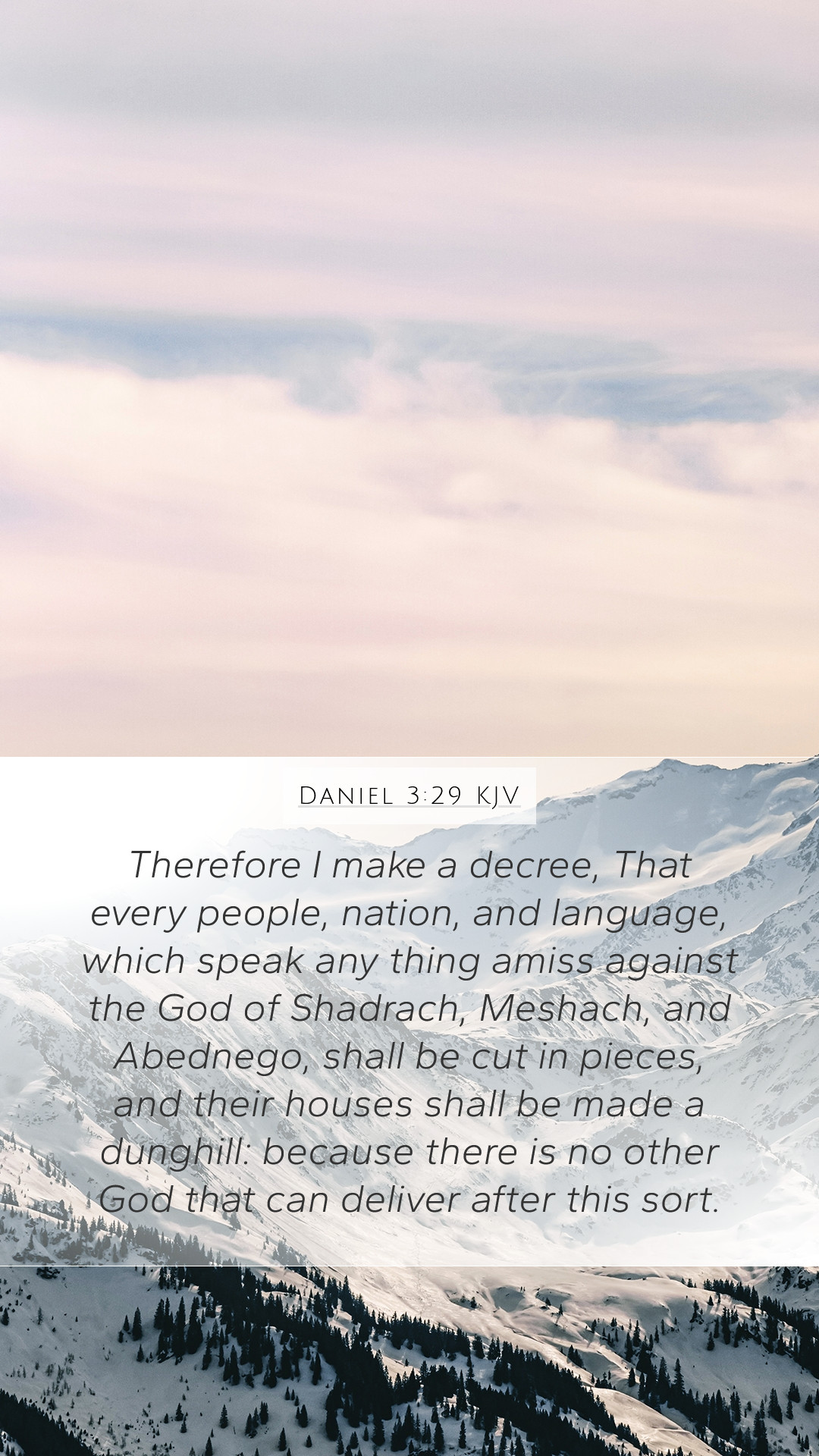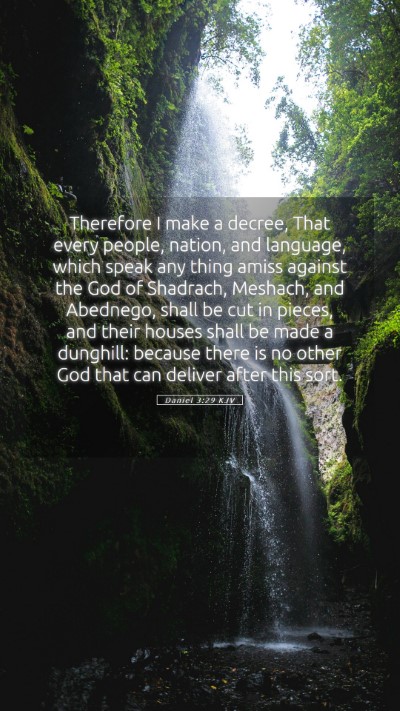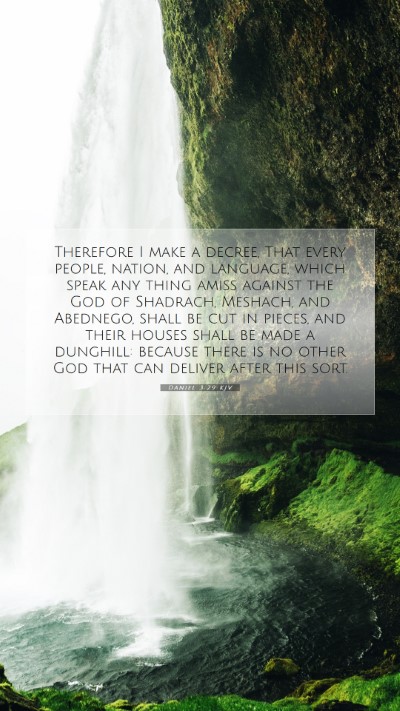Understanding Daniel 3:29: A Comprehensive Bible Verse Commentary
The verse Daniel 3:29 provides a powerful and profound statement following the miraculous deliverance of Shadrach, Meshach, and Abednego from the fiery furnace. It is crucial to explore the meanings, interpretations, and applications of this verse within its biblical context. Below is a detailed analysis derived from esteemed public domain commentaries including those by Matthew Henry, Albert Barnes, and Adam Clarke.
Verse Context
Daniel 3:29 reads, “Therefore I make a decree that every people, nation, and language which speaks anything amiss against the God of Shadrach, Meshach, and Abednego shall be cut in pieces, and their houses shall be made a dunghill: because there is no other God that can deliver after this sort.” This decree highlights King Nebuchadnezzar’s recognition of the divine power that spared the three Hebrew men. It is a moment of worship and reverence toward the God who intervenes in human affairs.
Key Themes
- Divine Intervention: The miraculous deliverance of Shadrach, Meshach, and Abednego illustrates God’s sovereignty and power to save His people. This teaching is echoed in other scripture passages, emphasizing the omnipotency of God.
- Recognition of God's Authority: Nebuchadnezzar’s decree represents a significant turning point where a pagan king acknowledges the supremacy of the God of Israel. This highlights the theme of acknowledgment of God’s authority in contrast to human systems.
- Warning Against Blasphemy: The severe consequence stated in the decree serves as a stern warning against speaking ill of the God who can save, underscoring the holiness and reverence due to God.
- Universal Declaration: The mention of “every people, nation, and language” emphasizes how God’s glory and authority transcend cultural and national boundaries, inviting all to recognize His power.
Bible Verse Meanings: Insights from Commentaries
Matthew Henry's Commentary
Matthew Henry highlights that Nebuchadnezzar, overwhelmed by the miraculous event, felt compelled to praise the God of Shadrach, Meshach, and Abednego. He notes the king’s transformation from an arrogant ruler to one who fears the true God, acknowledging a higher authority than his own. Henry emphasizes that this event serves to demonstrate God’s ability to protect His faithful servants even in dire circumstances.
Albert Barnes' Notes
Albert Barnes points out how the decree is not merely a recognition but a declaration that challenges the authority of other gods. He elaborates on the cultural implications, noting that this epiphany could serve as a catalyst for the conversion of others in Babylon. Barnes also discusses the dramatic contrast between the king’s previous decree demanding worship of the golden image and this newfound respect for the God of Israel.
Adam Clarke's Commentary
Adam Clarke adds that Nebuchadnezzar's declaration serves as a moment to censure blasphemy against the true God. He brings attention to the textual choice of the phrase “shall be cut in pieces,” which speaks not only of the king’s authority but of the seriousness of disrespecting God. Clarke posits that this act signifies a clear distinction between the true God and the false gods worshipped in Babylon.
Cross References
- Daniel 3:17-18: The declaration of faith by Shadrach, Meshach, and Abednego before facing the furnace.
- Isaiah 43:2: God's promise of protection in trials and tribulations.
- Exodus 20:7: The commandment against taking the Lord's name in vain highlights the seriousness of reverence towards God.
Application of the Verse
Daniel 3:29 serves as a profound reminder for believers today. It encourages a steadfast commitment to God even in the face of threats and pressures to conform to societal norms. It also emphasizes the importance of defending and honoring God’s name, as well as recognizing His ultimate authority over all creation.
Conclusion
In sum, Daniel 3:29 is rich with theological significance and provides important insights into the nature of God’s protection, the acknowledgment of His authority, and the consequences of blasphemy. Understanding this verse through a lens of detailed commentary encourages deeper Bible study insights and enriches one's spiritual journey.
For those looking to apply these biblical principles, engaging in Bible study groups or utilizing Bible study tools can enhance understanding and application of scripture. This verse exemplifies the transformative power of faith and serves as a call to worship and respect for God in all expressions of life.


